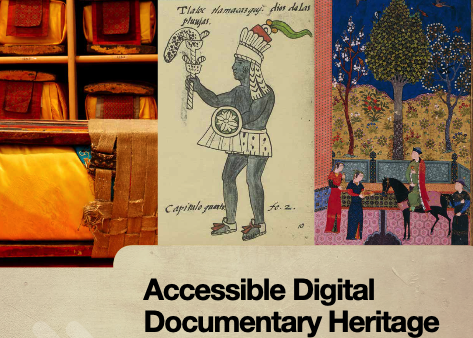UNESCO HAS PUBLISHED THE GUIDE “Accessible Digital Documentary Heritage – A set of Guidelines for the preparation of documentary heritage in accessible formats for persons with disabilities”. HERE>>
Xing Qu, Deputy Director-General Assistant Director-General for Communication and Information a.i. – In the 2030 Agenda, UN Member States pledged to ensure “no one will be left behind” and to “endeavour to reach the furthest behind first”.
The Sustainable Development Goals (SDGs) have further placed great emphasis on persons with disabilities, with ‘disability’ being mentioned dozens of times on issues relative to data collection, education, accessibility, work, justice, inequalities, and more. This speaks volumes about the importance of physical and digital inclusion for persons with disabilities. As acknowledged by Target 16.10 of SDG 16, ensuring public access to information is a critical aspect of sustainable development.
The focus of this publication is on the right to access to documentary heritage by persons with disabilities. In addressing this issue, the publication takes on a key feature of the 2016 Recommendation Concerning the Preservation of, and Access to, Documentary Heritage Including in Digital Form. This is promoting and facilitating maximum inclusive access to, and use of, documentary heritage by empowering memory institutions to provide, among other things, equitable person-to-person access services to original documents.
The advent of digital cultural archives and collections has spurred significant advancement in global access to culture, including through digitization. This has profoundly enhanced our cultural experience, not only in terms of production, dissemination and new technology-based access, but also in terms of participation and creation, as well as learning and participating in knowledge societies.
As the UN agency that fosters the creation of knowledge societies that are inclusive, pluralistic, equitable, open and participatory for all, UNESCO believes that the advantages of digitization should be enjoyed equally by persons with disabilities.That is why this publication, researched and authored by someone living with a disability, is such a significant contribution to the existing body of knowledge on how persons with disabilities, governments and other stakeholders can access and experience documentary heritage as a key feature of sustainable development.
FROM: UNESCO.org

